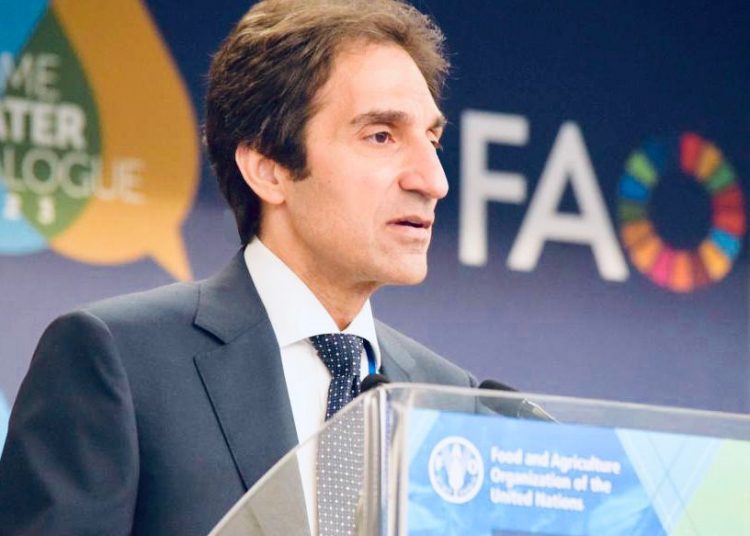Bassam Rady, Egypt’s Ambassador to Italy and Permanent Representative to the United Nations in Rome, on Sunday attended the conference ‘Rome Dialogue on Water’.
The Food and Agriculture Organisation (FAO) staged the event at its headquarters in Rome.
The ambassador briefed the audience on Egypt’s National Strategy for Water Resources Management, adopted by the state under the leadership of President Abdel Fattah El Sisi.
The objective of the strategy is to supply clean, healthy drinking water while rationalising water resources.
According to United Nations standards, water poverty denotes less than 1,000 cubic metres of water per capita annually. The per capita share of water in Egypt is only 500 cubic metres of water per annum.
The state must ensure water security for future generations through major national water projects to maximise the benefit of every drop of water, rationalise its use, improve its quality, and develop water management nationwide, the ambassador said.
The government has made great progress in the shift to modern irrigation systems, Rady said.
The state has also carried out canal lining, barrage construction, and dams to make use of flood water, Rady added.
The ambassador referred to desalination projects across the country and the re-use of agricultural waste through treatment plants at Al-Hammam City, which can handle 7.6 million cubic metres of water per day, Bahr Al-Baqar, 5.6 million cubic metres a day, and Al-Mahsama station, 1 million cubic metres per day within the Integrated Water Resources Management scheme.
At regional level and the Nile Basin, he said Egypt has always been a pioneer in exploiting the Nile in advancing the rules and principles of international law relating to shared rivers.
Egypt’s stance is based on a foreign policy that is a reflection of presidential diplomacy with high principles and values, based on the firm conviction that commitment to the spirit of co-operation is the only way to avoid the negative effects that may result from unilateral measures, in order to maximise the wealth of the Nile Basin, and for all countries to enjoy it. He referred to Egypt’s adherence to its historical water rights by reaching a binding legal agreement regarding the rules for filling and operating the Grand Ethiopian Renaissance Dam (GERD) in a manner that achieves the interest of all parties concerned.






Discussion about this post